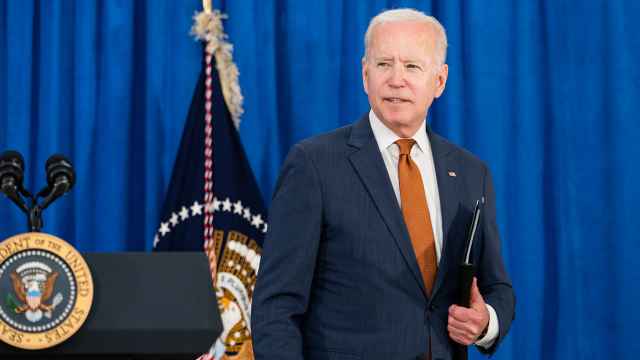Russia is ready to discuss scrapping its ban on U.S. families adopting Russian children, a top official has announced.
Valentina Matvienko, the speaker in Russia's higher house of parliament, the Federation Council, said that the Russian government was “open to dialogue.”
She claimed that the Kremlin had never wanted to keep the law in place, but accused the United States of refusing to work with Moscow officials.
“If the United States can guarantee our children's rights and well-being, if they are ready to cooperate with our diplomatic representatives, and if they can ensure that our officials are updated on the children's well-being, then there's no reason that everything can't 'return to normal,'” she said. “It was never our aim to keep this law in place.”
Matvienko also accused U.S. officials of prolonging the ban by refusing to try and broker a deal with the Kremlin.
"There has been no attempt by U.S. authorities to begin a dialogue with Russia on the issue over the last three years,” she said. “Not a single step was made to try and solve this problem.”
The politician's words come after the European Court of Human Rights (ECHR) ruled that the ban, which came into force in January 2013, was discriminatory and illegal.
The decision has already been slammed by Russia's Children's Ombudswoman Anna Kuznetsova and the Kremlin, which has vowed to appeal the decision.
The law was named in honor of Dima Yakovlev, a Russian-born toddler who died while in the custody of his adoptive American family in 2008. While officials argue the the legislation protects Russian children — the United States still has not signed the United Nations' convention on the rights of the child — critics claim that the law is a reaction to the United States' so-called Magnitsky List, which placed sanctions on high-ranking government officials.
A Message from The Moscow Times:
Dear readers,
We are facing unprecedented challenges. Russia's Prosecutor General's Office has designated The Moscow Times as an "undesirable" organization, criminalizing our work and putting our staff at risk of prosecution. This follows our earlier unjust labeling as a "foreign agent."
These actions are direct attempts to silence independent journalism in Russia. The authorities claim our work "discredits the decisions of the Russian leadership." We see things differently: we strive to provide accurate, unbiased reporting on Russia.
We, the journalists of The Moscow Times, refuse to be silenced. But to continue our work, we need your help.
Your support, no matter how small, makes a world of difference. If you can, please support us monthly starting from just $2. It's quick to set up, and every contribution makes a significant impact.
By supporting The Moscow Times, you're defending open, independent journalism in the face of repression. Thank you for standing with us.
Remind me later.





